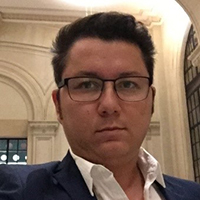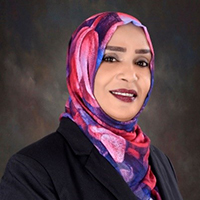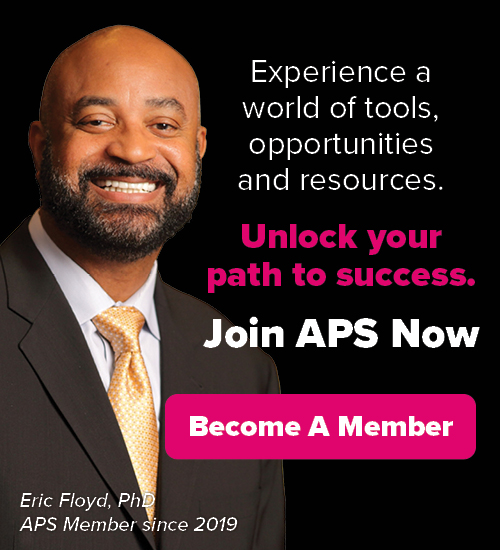- Membership & Community
-
Publications & News
- Physiology Journals
-
Newsroom
-
The Physiologist Magazine
- 2019
- 2020
- 2021
- 2022
- 2023
- 2024
-
In Depth
- In Depth—The Bear Necessities
- In Depth: Understanding Circadian Rhythms
- In Depth: Understanding Data
- In Depth: Exercise Physiology: Take Your Medicine at the Gym
- In Depth: Neurodegenerative Disorders
- Imaging Methods Unveil the Invisible
- Rewiring the Brain: Breakthroughs in Neural Therapy
- What’s Coming Next for GLP-1 and Metabolic Disease Treatment
- Understanding the Effects of Maternal Exercise
- How Muscles May Hold Cues to Better Sleep
- The Science Behind Breathwork and Mental Health
-
Mentoring Forum
- Net Worth
- Take Care
- You … In Charge
- Work. It. Out.
- Working Off-site
- Location, Location, Location?
- Student Support
- Progressing to Postdoc
- Relationship Building
- Let’s Get It Started
- What Do We Value?
- It’s a Postdoc Life
- Coronavirus Contributions
- Creative Communications
- Selection Process
- Conference Connections
- Postdoc Appreciation
- Research Rewards
- Focus on Teaching
- Industry Insights
- Balance Beam
- Post Postdoc
- If You Build It
- Talk It Through
- Forward Bound
- I’ve Earned My PhD. Now What?
- University Life
- Tips for Trainees
- Time Travel
- Prepare Now for the Career You Want
- Landing a Postdoctoral Researcher Position
- Becoming a Physician-Scientist
- Mastering the Art of Science Communication
- Setting Yourself Up for Success in the Lab
- From Postdoc to Professor: Key Strategies for Success
- How to Stay Motivated in Challenging Times
- Staying Motivated Throughout Your Science Career
- Managing Stress and Workload During Your PhD
- Stay Passionate About Your Physiology Career
-
Policy IQ
- Policy IQ—2023 in Review: How APS Advocated on Behalf of Physiologists
- Policy IQ—Supporting Equitable Research
- NIH's Road Map to a Better Postdoc Experience
- The Career Path to Science Advocacy
- Culture of Safety: Stopping Sexual Misconduct
- Physiologists Return to Capitol Hill
- Tips for Scientists to Communicate about Animal Research
- Science Advocacy in a New Political Landscape
- Tips for Making the Call to Congress
- Science Spending Is an Investment
- Advocacy Up Close and Personal
- How Animal Research Advances Physiology and Medicine
-
Publish with Polish
- Publish with Polish
- The Layers of Open Science
- Take Your Content From Meeting to Manuscript
- APS Journals to Highlight Women’s Health Research
- What Subscribe to Open Means for APS Members
- The 5 Pillars of Publish with Purpose
- 3 Types of Metadata Researchers Should Know About
- Navigating Open Access and New Licensing Options
- Journal Manuscript Prep Made Easy
- How to Navigate Public Access Requirements
- Ensuring Public Trust in Publishing
- Improve Your Scientific Figures With APS and BioRender
-
Under the Microscope
- Equine Inspiration
- Inquiring Minds
- The Power of Teaching
- The Love of Physiology
- Understanding Women's Physiology Across the Lifespan
- Studying Human Health in Extreme Environments
- Advancing Kidney Health and Physiology Research
- How Gut Microbes Shape Blood Pressure and Drug Response
- Battling Malaria
- Exploring the Microbiome
- From Physics to Physiology: A Scientist's Unconventional Journey
- Mentoring Q&A
- Evolution
- Baseline by Scott Steen, CAE, FASAE
- 2025
- Find Us on Social Media
-
The Physiologist Magazine
-
Professional Development
-
Meetings & Events
-
American Physiology Summit
- #APS2024 Overview
- Abstracts
- Awards at the Summit
- Award Lectures
- Career Networking Lunch Form
- Dates and Deadlines
- Advocate for Health Research Funding
- Hotel Information
- International Travel Information for Summit Attendees
- Industry Partners
- Mobile App
- NIH and NSF Program Officer Panel Discussion Form
- Physical Poster Information
- American Physiology Summit PhysioHub
- Pre-Summit Events
- Registration
- Section & Group Banquet Tickets
- Social Events
- Speaker Audiovisual Instructions
- Summit FAQs
- Travel & Transportation
- Undergraduate Program Book
- Liability Waiver
- Industry Partners
- Joseph Erlanger: Pioneering Nerve Research and APS Leadership
- 2023
- 2024
- Scientific Integrity Policy
- Exhibitor Registration Form
- Keynote Speaker Tracy L. Bale, PhD
- Keynote Speaker Jennifer Lippincott-Schwartz, PhD
- Career Day Workshop: Own Your Path, Positioning for the Career That Fits You
- From Concept to Classroom
- New Trends in Sex Differences and Women’s Health Research
- Control of Renal Function in Health and Disease
- Comparative Physiology Conference
- Webinars
- Future APS Conferences
- Conference Policies
-
American Physiology Summit
- APS Awards
-
Career & Professional Development
-
Career Gateway
-
Resources
- Transcript—Leading Through Conflict and Difficult Conversations
- Transcript—Managing Conflict with Colleagues
- Transcript—Leading a Team Through Conflict
- Transcript—Providing Difficult Feedback
- Transcript—Team Dynamics and Culture Primer
- Transcript—Building a Team
- Transcript—Leading a Team Assigned to You
- Transcript—Creating a Team Culture
-
Resources
- Career Navigator
- Center for Physiology Education
- Virtual Courses
- Physiology Job Board
- APS Graduate Physiology & Biomedical Science Catalog
-
Career Gateway
-
Meetings & Events
-
Advocacy & Resources
- Science Policy
-
Resources
- Researcher Resources
- Educator Resources
- Trainee Resources
- Student Resources
-
APS Graduate Physiology & Biomedical Science Catalog
- Des Moines University
- George Washington University
- Michigan State University
- New York Medical College
- Nova Southeastern University
- Pennsylvania State University
- Texas A&M University
- Texas A&M University Medical Physiology
- Stony Brook University
- University of Alabama at Birmingham
- University at Buffalo
- University of Colorado
- University of Michigan
- University of Minnesota
- University of Missouri-Biomedical Sciences
- University of Nebraska Medical Center
- University of Nevada, Reno
- University of South Carolina School of Medicine
- University of Tennessee Health Science Center (UTHSC)
- University of Texas Health Science Center
- Virginia Commonwealth University
- Wayne State University
- Physiology Department Catalog Submission Form
- Boston University
- Career Gateway
- Major Initiatives
- About APS
APS Members: Watch On-demand
This webinar a collaboration between the APS Diversity, Equity & Inclusion Committee and Teaching of Physiology Section. Presenters will discuss the challenges faced by physiology educators worldwide during the COVID-19 pandemic as a result of inequitable access to technology. The focus of this session will be to identify challenges as well as alternative approaches to mitigate this inequity experienced by many countries and communities during the global pandemic and beyond.
The goals of the webinar include answering the following questions:
- What challenges do countries or communities without universal access to technology encounter when in-person instruction is not available?
- How do technological challenges impact faculty development, teaching resources, student engagement and equity in the classroom?
- What tools, other than Zoom, are universally available in the midst of technological immersion?
- What can educators do to increase awareness and overcome the challenges faced in other educational communities?
Moderator
 Patricia A. Halpin, PhD, associate professor of biological sciences and biotechnology at The University of New Hampshire at Manchester, is internationally known for her STEM education research, focusing on use of dramatizations and songs to teach physiology and innovative student engagement strategies. For almost two decades, she has successfully implemented K–12 physiology outreach. Halpin teaches animal physiology, endocrinology, ethical issues in biology and clinical pathophysiology to undergraduates. She also serves as a mentor for capstone students who perform science outreach in the community. Halpin has authored numerous publications and has been awarded several National Science Foundation grants for education research. She has been a member of APS since 1995 and is the chair of the APS Teaching of Physiology Section.
Patricia A. Halpin, PhD, associate professor of biological sciences and biotechnology at The University of New Hampshire at Manchester, is internationally known for her STEM education research, focusing on use of dramatizations and songs to teach physiology and innovative student engagement strategies. For almost two decades, she has successfully implemented K–12 physiology outreach. Halpin teaches animal physiology, endocrinology, ethical issues in biology and clinical pathophysiology to undergraduates. She also serves as a mentor for capstone students who perform science outreach in the community. Halpin has authored numerous publications and has been awarded several National Science Foundation grants for education research. She has been a member of APS since 1995 and is the chair of the APS Teaching of Physiology Section.
Panelists
 Camilo Lellis-Santos, PhD, is a professor at the Universidade Federal de São Paulo in Brazil. He graduated from São Paulo State University and obtained his PhD degree in human physiology from the Institute of Biomedical Sciences, University of São Paulo. Lellis-Santos coordinates the Laboratory of Experimentation and Physiology Education, a research group focused on developing and investigating technological and innovative methods in physiology education. He is the coordinator of the teaching committee of the Federation of Brazilian Societies for Experimental Biology. During the pandemic, Lellis-Santos has facilitated several workshops nationwide to help faculty apply online teaching strategies and smartphone-assisted experimentation.
Camilo Lellis-Santos, PhD, is a professor at the Universidade Federal de São Paulo in Brazil. He graduated from São Paulo State University and obtained his PhD degree in human physiology from the Institute of Biomedical Sciences, University of São Paulo. Lellis-Santos coordinates the Laboratory of Experimentation and Physiology Education, a research group focused on developing and investigating technological and innovative methods in physiology education. He is the coordinator of the teaching committee of the Federation of Brazilian Societies for Experimental Biology. During the pandemic, Lellis-Santos has facilitated several workshops nationwide to help faculty apply online teaching strategies and smartphone-assisted experimentation.
 Nouralsalhin Abdalhamid Alaagib, MBBS, MsC, PhD, MHPE, is an associate professor of physiology, head of the physiology department and the board of the master program of human physiology at the Faculty of Medicine University of Khartoum in Sudan. She received a master’s degree and PhD in human physiology and a master’s degree in medical education from the Graduate College at University of Khartoum in Sudan. Alaagib is interested in innovation in teaching and learning. She is an active member of the Sudanese Physiological Society and Sudan Association of Medical Education.
Nouralsalhin Abdalhamid Alaagib, MBBS, MsC, PhD, MHPE, is an associate professor of physiology, head of the physiology department and the board of the master program of human physiology at the Faculty of Medicine University of Khartoum in Sudan. She received a master’s degree and PhD in human physiology and a master’s degree in medical education from the Graduate College at University of Khartoum in Sudan. Alaagib is interested in innovation in teaching and learning. She is an active member of the Sudanese Physiological Society and Sudan Association of Medical Education.


